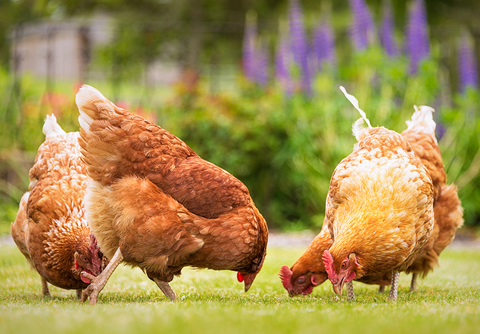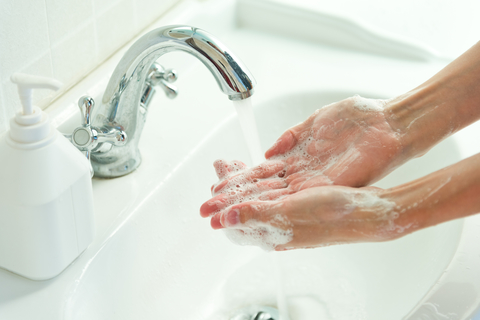Quick facts
-
Common concerns for backyard or urban poultry include disease, noise, odor, pests and waste management.
-
Washing your hands before and after handling birds can help prevent disease spread.
-
Always properly prepare and cook poultry products to prevent illness.
-
Keeping your coop clean and free of wet feed can manage odor and pests around small flocks.
Town and city governments have common concerns when they consider requests by residents to keep poultry in urban settings. These concerns include disease, noise, odor, pests and waste management.
Poultry diseases and transmission to humans (zoonosis)
The main diseases of concern in poultry include:
-
Salmonellosis
-
Campylobacteriosis
-
Chlamydophilosis (psittacosis)
-
Avian influenza
Salmonella and campylobacter
Illness from salmonella and campylobacter typically result from eating contaminated food that is improperly cooked or prepared. Salmonella and campylobacter can exist in the bird’s gut and in turn the bird’s feces. Thus handling feces can be a concern. However, usually neither are present in the gut of poultry.
The number of human salmonella outbreaks from handling live poultry has increased over the years. The Centers for Disease Control (CDC) regularly update reports on current outbreaks from a variety of causes.
People, especially children, should wash their hands before and after handling live poultry to prevent disease. The CDC reports that most individuals with salmonella had handled chicks or ducklings. Of those individuals, 45 percent were children. Being aware of and educating children on proper poultry handling can help prevent salmonella illness.
-
Avoid close contact with birds such as hugging or kissing—13 percent of sick patients had kissed birds.
-
When handling birds, don’t touch your hands to your face until you’ve washed them with soap and warm water; don’t eat or drink around birds.
-
Avoid keeping poultry inside your household—46 percent of sick patients had housed poultry inside their homes.
-
Always wash your hands with warm soapy water after handling birds.
-
Change your clothing and shoes after handling and caring for birds.
Read tips on preventing salmonella infection from the CDC’s website.
Avian influenza
Avian influenza is a respiratory disease in birds that can occur from many different subtypes of influenza virus. Most subtypes don’t affect humans (zoonotic). One subtype, found in Europe and East Asia, can pass from birds to humans. This subtype has not been diagnosed in people in the United States, but national and state programs exist to monitor U.S. poultry and wild birds for this subtype.
Parasites
Parasites of poultry must live on or inside the birds to survive. These parasites don’t infect humans. External parasites such as the northern fowl mite, live on birds and aren’t infectious for people. Intestinal parasites, such as coccidia and roundworms can live in the gut of poultry but don’t infect humans, dogs or cats.
Chlamydophila
Chlamydophilosis is rarely diagnosed in domestic poultry, usually turkeys or pigeons, and is generally not a disease of chickens. Most cases of chlamydophila infection are diagnosed in psittacine birds such as parrots and only on rare occasions. Chlamydophila infection spreads after coming in contact with respiratory secretions or feces of sick birds.
Noise
- Roosters and hens vary in the noises they make. Mature roosters will crow while hens make a clucking noise.
- Clucking tends to be a soft tone, but hens can have loud alarm call if startled or threatened. These calls occur over a short time period and end when the threat is over or identified.
- Typically, chickens vocalize very little during the night time hours unless the birds become startled.
- Hens that have reproductive failures can adopt male behaviors like crowing.
Odor and manure management
- Odor occurs when poultry manure accumulates.
- A small number of birds won’t produce much manure.
- Routine cleaning of the coop will prevent odor issues from arising.
- Owners can use removed bedding and manure as a fertilizer in the fresh or composted form.
Pests
- Birds, manure and feed can all attract pests to small flocks. Keeping the coop clean and properly storing feed can reduce the number of flies around flocks.
- Keep bedding dry and remove soiled bedding and wet feed.
- Cleanliness will also reduce problems with rodents such as house mice and Norway rats.
- Larger pests or predators such as foxes, raccoons and coyotes that already reside in urban areas may take an occasional chicken. However, small flocks kept in any one area are unlikely to attract and sustain any number of predators.
Reviewed in 2020



